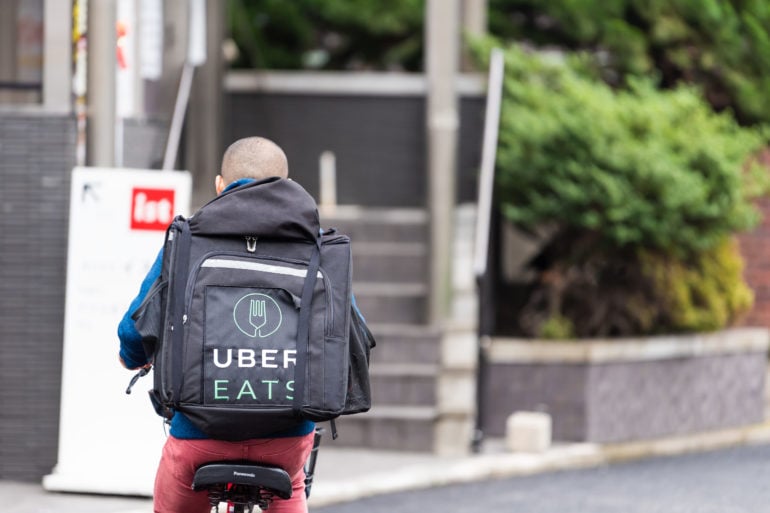Uber Australia has settled a Federal Court case with an UberEats driver they sacked for being late with a delivery before the court could rule on whether then driver was an employee of the business.
The move heads off the threat the US tech giant being forced to recognise drivers as employees, rather than contractors, putting its business model at risk. The company settled the landmark case over the Christmas break in an Australian first that could open the door to further legal challenges that will either lead to additional settlements or further challenges to the status of delivery riders.
The confidential settlement is with Amita Gupta and her husband, Santosh, who made UberEats deliveries in Adelaide between 2017 and 2019 before their access to the app was stopped in January 2019. The ban reportedly occurred after a delivery was 10 minutes late.
Amita Gupta’s statement of claim also alleged she was paid $300 for 96 hours of work, well below the minimum wage is $18.93.
The Guptas lodged an unfair dismissal claim in the Fair Work Commission, backed by the Transport Workers Union, but lost that case in August 2019 and again on appeal in April 2020.
The matter then went to the Federal Court on appeal, again backed by the TWU, which has also campaigned against Deliveroo and Foodora over the contractor status of drivers. The matter was heard in November 2020 before the full bench, just as five delivery riders had died in just two months while on jobs.
Questioning from the bench had some observers believing the judges were sceptical of Uber’s submissions, with Justice Mordecai Bromberg saying: “Everybody knows what function Uber plays. The restaurant’s function is to prepare the food. Uber’s function is to deliver the food; isn’t that right?”
Uber’s legal team declined to accept the propositions put by the bench.
Justice Bromberg also observed that: “Uber has a longstanding reputation, if you like, in the transport business” and that: “the very name Uber would convey to the ordinary person some form of transportation service; wouldn’t it?”
The Federal Court justices repeatedly questioned Uber’s legal team over the company’s classification of delivery drivers with Justice Bromberg asking “is your case dependent upon the court finding that, not only is there not a relationship of employee between the worker and Uber, but also that there’s not a relationship of independent contractor between the worker and Uber?”
Justice Richard White told the company’s barrister that: “Your client has drawn up this careful contract with all these provisions in it, and either does not have a view as to what is the correct characterisation of the relationship or is not willing to disclose it to this court.”
Justice White would later say when discussing the Uber contract with delivery drivers: “Again, I’m just wondering whether we’re operating in the real world.”
TWU National Secretary Michael Kaine said the Federal Court hearing made it clear that a settlement with Gupta was the only option left to the company “in the face of a potential judgment which would have utterly altered how the company and other gig economy companies operate” in Australia.
“The judges clearly saw through Uber’s spin and ‘careful contract’ and recognised the sham it is. Uber has constructed a business model in order to refuse its workers any rights, to minimum pay, the right to challenge an unfair sacking, to protective gear or training,” he said.
It’s the first time Uber has settled a case in Australia. Uber was part of the US$200 million campaign in the lead up to the US elections in November to oppose a California law that would have classified gig economy workers as employees. The proposal was rejected by voters.




















Trending
Daily startup news and insights, delivered to your inbox.